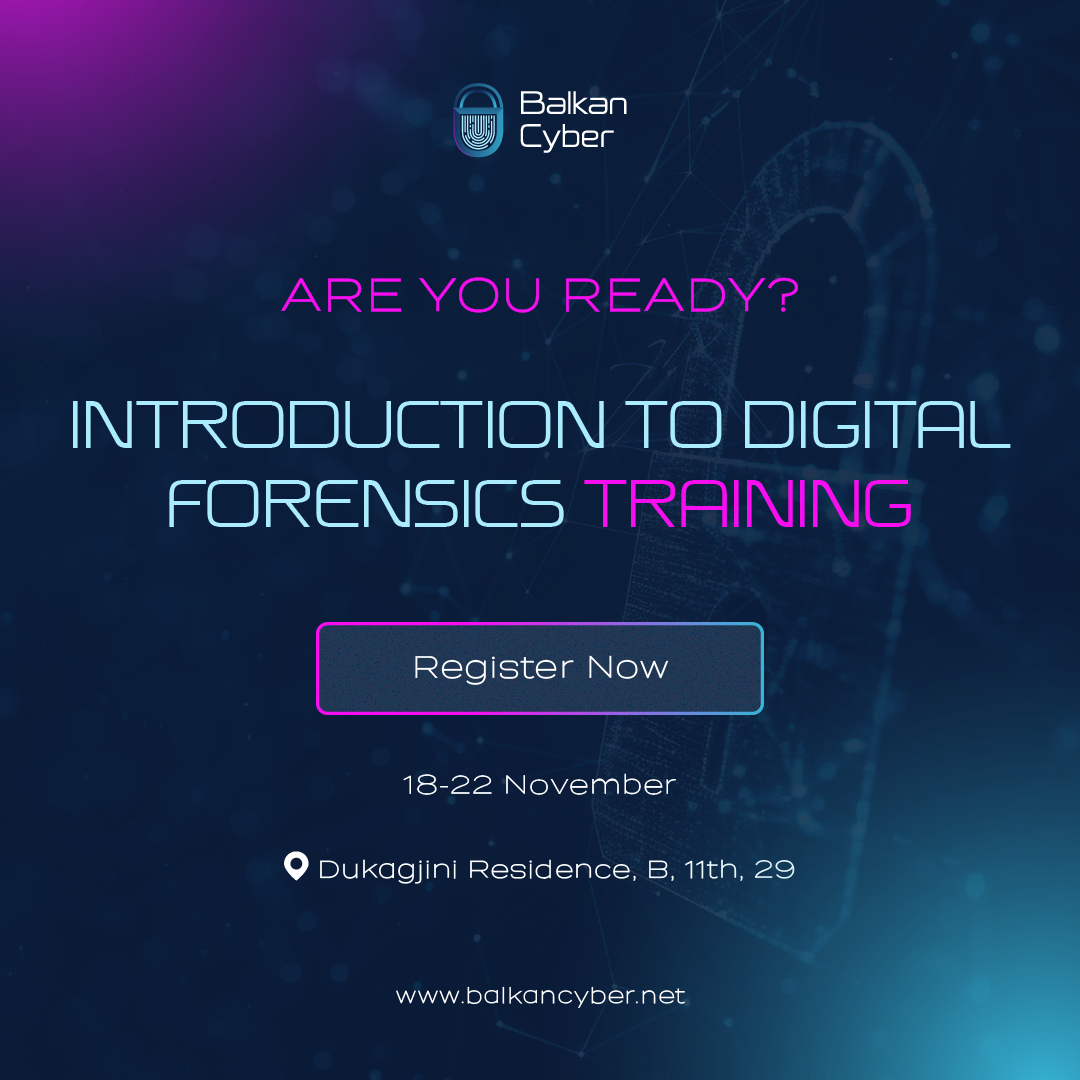Introduction to Digital Forensics
Embark on a journey into the world of digital investigations with Balkan Cyber’s Introduction to Digital Forensics training. This foundational course is meticulously designed to equip beginners and professionals alike with the principles and practices of digital forensics. It’s the perfect entry point for those looking to understand the critical role that digital evidence plays in solving modern-day crimes and security incidents.
Training Overview
- Fundamentals of Digital Forensics
Explore the core concepts, including the types of digital evidence, how it’s found, and its significance in various contexts, such as criminal investigations and corporate security.
- Forensic Readiness
Learn the steps organizations can take to prepare for incidents that require digital forensic investigation to ensure evidence is preserved and collected correctly.
- Acquisition Techniques
Understand the methodologies behind secure evidence collection, including creating forensic images and maintaining a chain of custody.
- Analysis Tools and Techniques
Get to grips with the basic tools and techniques used to analyze digital evidence, from hard drives to mobile devices and cloud storage.
- Legal and Ethical Considerations
Delve into the ethical implications and legal framework governing digital forensic investigations to ensure compliance and admissibility of evidence.
- Real-World Applications
Discover how digital forensics is applied in various scenarios, from cybercrime to internal corporate investigations and compliance checks.
- Case Studies
Learn from past forensic analyses, understanding how digital evidence was key to solving high-profile cases.
Who Should Attend:
This course is suitable for IT professionals, law enforcement officers, legal professionals, compliance managers, and anyone interested in entering the field of digital forensics or seeking to understand how digital evidence can be used effectively.
Training Outcomes:
Participants will leave the course with a solid understanding of digital forensics, equipped to recognize potential digital evidence, comprehend the principles of collecting and analyzing this evidence, and appreciate the legal and ethical boundaries of the field.
Join Balkan Cyber’s Introduction to Digital Forensics

Training Agenda
- Day 1: Fundamentals of Digital Forensics
- Course Introduction & Objectives
- Overview of digital forensics, its importance, and applications in investigations.
- Digital Evidence Basics
- Types of digital evidence, sources, and foundational handling practices.
- Legal and Ethical Considerations
- Evidence admissibility, ethical guidelines, and investigator responsibilities.
- Lab 1: Evidence Collection & Chain of Custody
- Hands-on practice documenting, handling, and preserving the chain of custody for digital evidence.
- Day 2: Forensic Imaging & Acquisition Techniques
- Forensic Imaging Essentials
- Introduction to imaging types (physical, logical) and imaging methods.
- Data Acquisition Tools
- Overview of tools such as FTK Imager and EnCase and their core functions.
- Lab 2: Creating Forensic Images
- Practical exercise with FTK Imager to create a forensic image of sample data.
- Day 3: File System Fundamentals & Artifact Analysis
- Understanding File Systems
- Basics of FAT32, NTFS, and other common file systems.
- Identifying Key Artifacts
- Analysis of files, metadata, timestamps, and hidden data.
- Lab 3: File System Exploration
- Examining and analyzing files within a sample forensic image.
- Day 4: Data Recovery & Analysis Techniques
- Data Recovery Basics
- Techniques for recovering deleted files, examining slack space, and analyzing unallocated space.
- Basic Artifact Analysis Techniques
- Methods for locating and interpreting common digital artifacts.
- Lab 4: Data Recovery Practice
- Recovering deleted files and analyzing unallocated space with FTK Imager or similar tools.
- Day 5: Reporting, Review, & Course Graduation
- Forensic Report Writing
- Structuring and writing clear, legally sound forensic reports.
- Mock Case Review
- Applying techniques to analyze a sample case and write a report.
- Lab 5: Final Case Presentation
- Presenting findings from the mock case, simulating an expert witness scenario.
- Course Graduation & Certificates
- Graduation ceremony, certificate presentation, and closing remarks.